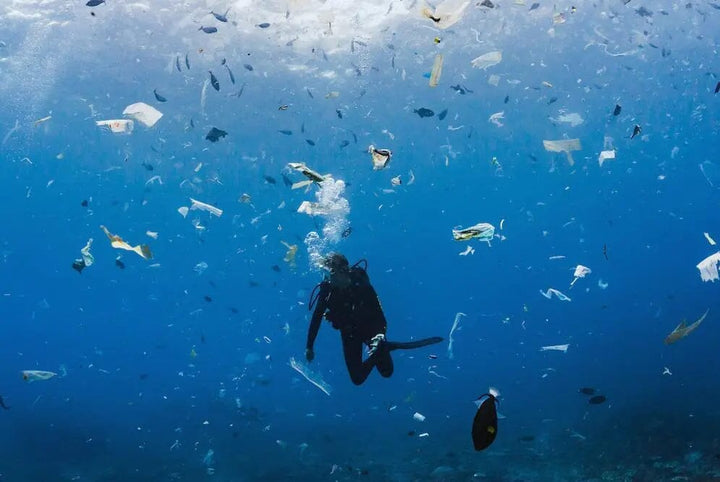Traveling in Asian countries has truly opened our eyes to the ocean plastic problem. Nowhere else have we encountered such a sad sight of huge piles of plastic on the reefs, in the water, beaches, and backyards of local people. Even though commercial fishing and other industries are mainly to blame on this problem, it's still easiest to see with your own eyes when walking on the paradise beaches. To find something positive about it, we hope this cruel sight will sparkle the inspiration to change one's own behavior.
All actions matter, even the smallest ones when fighting to save our planet.
In Indonesia, it was sad to see beautiful manta rays swimming in the soup of plastic waste like water bottles, food wraps, plastic bags, and other household items. In Malaysia we witnessed locals pouring their trash cans directly into the ocean, close to the area which is said to be one of the best diving areas in the world. In Thailand, we saw bananas individually wrapped in plastic in 7Eleven stores. If only these fruits had their own protective layer...

It's been estimated that a truckload of rubbish ends up in the oceans every minute. That makes about 12 million tonnes of plastic each year. It includes everything from plastic bottles and bags to microbeads. Pieces of plastic are choking and entangling marine life and other animals living in or around the oceans including turtles, whales, and seabirds who mistake the plastic for food. Plastic ends up even on our plates when eating seafood.
We are now producing nearly 300 million tons of plastic every year, half of which is for single use.

Big corporations and especially the fishing industry has a huge responsibility on the issue. At least 46 percent of the plastic comes from fishing nets. One solution exists, a system to mark commercial fishing gear so that the person or company that bought it can be held accountable when it’s abandoned. To support the proper disposing of the fishing gear, onshore facilities should also provide ways to recycle plastic nets. In the developing world where the waste management is more informal, there could be an incentive for the fishermen to bring nets for proper disposal.
Tell supermarkets to ditch throwaway plastic packaging
Big corporations should stop producing excessive plastic packaging that is designed to be used once then thrown away. Governments can also tackle this problem by creating closed-loop systems that allow us to recover and reuse materials rather than waste them. A plastic that doesn’t get recycled can end up going to landfill sites on the coast that might leak into the sea, as well as many other routes to the open ocean where currents will take it to the four corners of the globe.
Plastic recycling is improving all the time and nowadays we can find great ways to re-use plastic in items such as sportswear. See our Recycled Plastic Collection.




